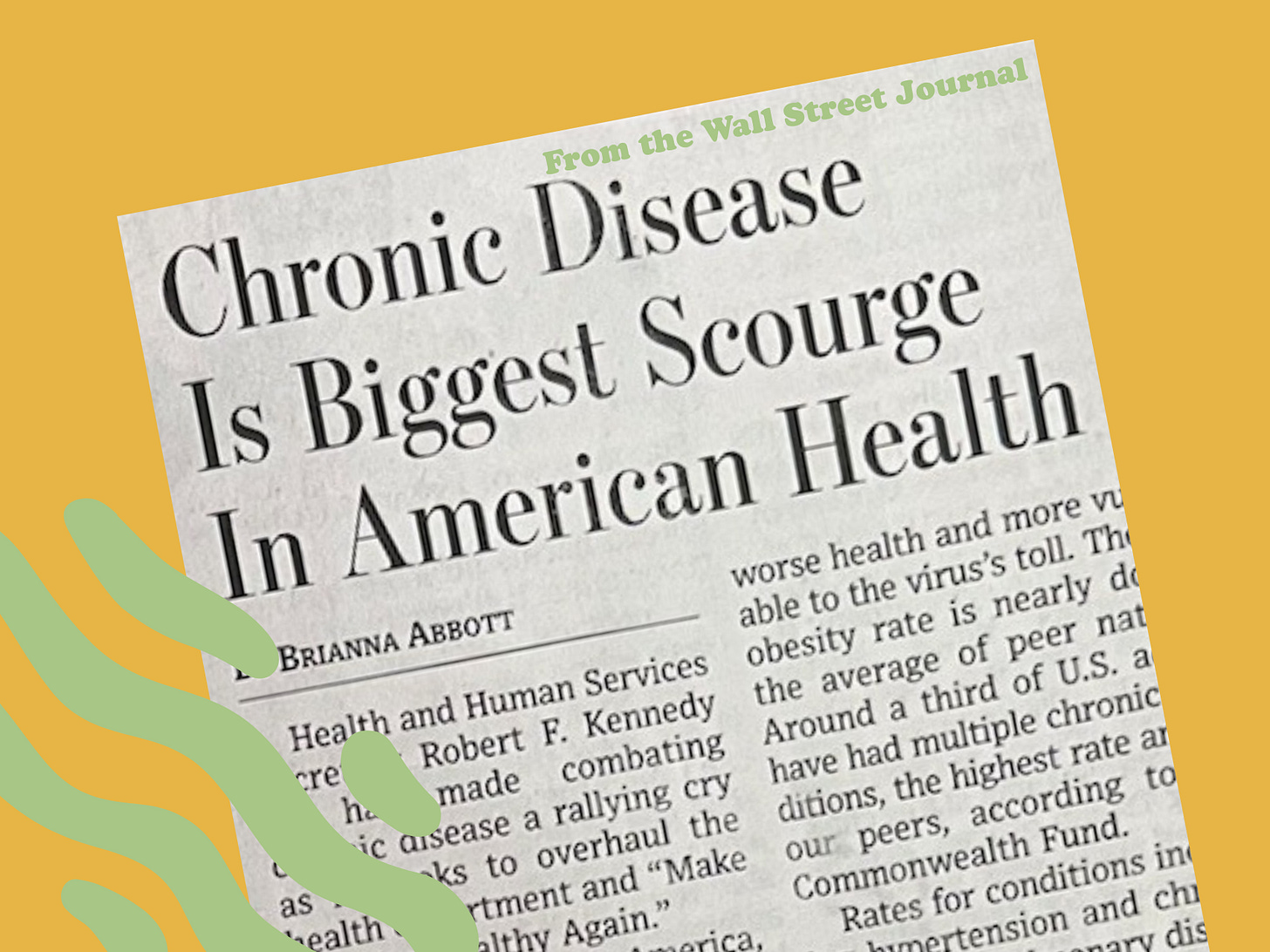What we eat, how we live
Making small food choices we can control
We lead busy lives, and food often takes a back seat to our work, family, and other responsibilities. But when our diet suffers, so does our health—sometimes leading to chronic conditions like hypertension, obesity, and diabetes.
A recent Wall Street Journal article, “Chronic Disease Is the Biggest Scourge in American Health,” deserves everyone’s attention. If you missed it, here’s the link.
In the U.S., we spend a lot on healthcare, yet outcomes fall short. A report from the Commonwealth Fund highlights affordability and access as key issues. The U.S. excels at delivering healthcare, though it’s complicated by insurance and billing. Still, Americans, on average, live shorter lives than those in peer nations.
About 33% of American adults have had multiple chronic conditions—more than in any comparable country—according to another Commonwealth Fund report. That same report found the U.S. has the highest rates of avoidable or treatable deaths, and among the highest suicide rates. (Every life is precious. That last point is painful to see.)
So, what can be done?
The Commonwealth Fund suggests several systemic fixes, including increasing investment in primary care, reducing administrative inefficiencies, addressing the financial effects of healthcare consolidation, and aligning social policy to better support public health.
Big words. Big problems. So what can you do?
This is where the WSJ article stood out. It asked, How healthy are Americans? The answer, sadly: not very. We lag behind much of the world for many reasons—including limited physical activity, diets high in sugar and ultra-processed foods, the high cost of care, poor insurance access, and a shortage of available doctors.
Some of those factors are beyond our control.
But food? That’s something we can manage—at least, some of the time. And that’s what I took away from this important article.
What I recommend
Right off the bat, I would eliminate sugary drinks and processed foods. They simply don’t exist on my list. I’d rather have water and a handful of fruit or nuts. That alone simplifies things.
As for meals, I focus on easy, real foods—vegetables and proteins that don’t require much prep. Some mornings it’s store-bought hard-boiled eggs if I haven’t had time to make them myself, or oatmeal with blueberries for fiber. I toss in a vegetable as a side—usually whatever’s in the fridge.
If you know me, you know I believe in having a vegetable at every meal. Still, sometimes I have to bend that rule. At a recent conference, breakfast was the usual spread of baked goods and fruit. I came prepared with instant oatmeal, added some blueberries from the fruit tray, and took a few slices of cantaloupe. Not quite home, but close enough.
Lunch might be a salad with turkey, chicken, or salmon. I skip heavy sandwiches and sauces in favor of something lighter. Do I skip the chips? Always. I don’t need the extra oils or cholesterol. They don’t hold any appeal for me because I want to stay well so that I can achieve my goals.
One of my deep beliefs is that as we age, we need to be ever more mindful of what we put in our bodies. Food choices shouldn’t be made casually. I’ll reach for an orange or a banana—and if I’m lucky, there’s some homemade banana bread or granola bars in the fridge.
Dinner takes a little planning, which I usually do on the weekend. I keep dinner simple: good-quality basics, not elaborate recipes with a dozen ingredients. I admire people who can pull that off, but it takes time and a pantry I don’t always have. I’ll cook fish, chicken, or tofu and add a mix of vegetables with a carb or healthy fat. I keep condiments at a minimal—maybe a little mustard or no-sugar ketchup made from vegetables.
Sometimes I prepare vegetables ahead of time. Other weeks, I wash and store them as I go.
Pianos and more
We like to say around here that you can’t always control a piano falling on your head. What I mean is—we’re all juggling a lot, and health issues may still arise despite our best efforts. The piano falls. But if food is one of the few things we can influence, maybe taking care of ourselves through what we eat can help us stay well just a little longer.
And that feels like a good place to start.



